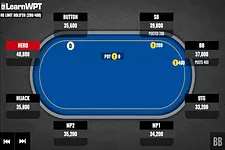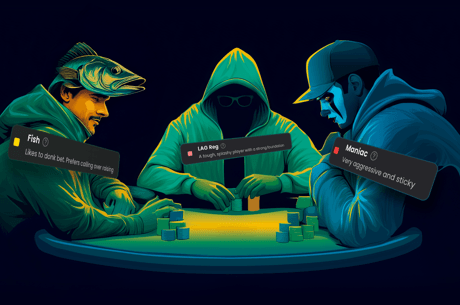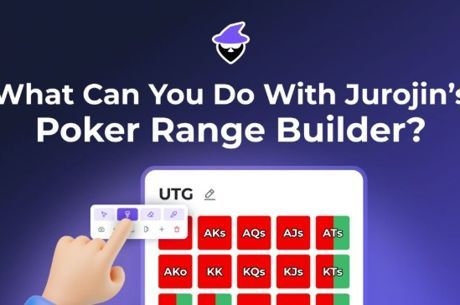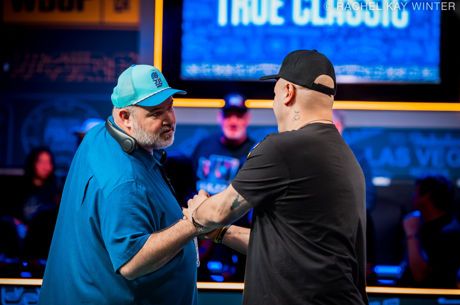Utilizing the Antifragile Concept in a Poker Life

To say a life spent in poker is unpredictable (other than your aces being cracked) is like saying the sky is blue or we need air to breathe and water to drink in order to survive. Whether we play for recreational stimulation or as the hard way to make an easy living, poker is not for those who have weak stomachs or are risk-averse.
Running a few standard deviations below EV (to then run below again), having websites and funds disappear overnight, finding legal authorities in your jurisdiction shutting down or restricting your game-of-choice, dealing with angle shooters or unfavorable rulings, encountering players around you wising up to your strategies and moves, having to learn the intricacies of foreign banking and residency rules, learning what a crypto wallet is and how to transact in digital currencies, playing PLO for a living — the list goes on and on.
Poker players everywhere face sets of challenges, not just in the swings of bad luck within the game, but in the "game-outside-the-game" as well.
A typical response to these stress occurrences might counsel us to be resilient, to remain stalwart, to hang tough. As these mental-frames go, we need to hold the line against inevitably being weakened, with an implied best-case scenario of "getting back to where we were" before the hardship. That is, generally a range from 0 to 100 percent of our pre-stress misfortune state.
But what about the idea (via Friedrich Nietzsche) that "what does not kill me makes me stronger?" What about those times when an adversity was the catalyst for us to grow, improve, pursue and obtain new learning and skills? To come back stronger as better versions of our previous selves by capitalizing on the hardships poker throws our way?
Making Gains from Stress and Disorder
The Lebanese-American author Nassim Taleb has introduced a word — "antifragile" — that attempts to bridge this conceptual gap of growth and improvement through stress.
As Taleb explains in Antifragile: Things That Gain From Disorder, sometimes there might exist language gaps for describing a concept or phenomenon, though such gaps do not preclude our awareness of the concept per se. For example, there is no word in ancient Greek language for the color "blue"; hence, Homer in The Iliad describes the sea as "wine-dark" in color.
For Taleb, "antifragile" is not just fragile (easily harmed under stress), and not merely "resilient" (good at resisting stressors, yet capped at 100 percent of prior state), but that which thrives and is augmented when exposed to randomness, disorder, stress, chaos, or volatility. Think of a runner or weightlifter who gets faster and/or stronger through training stressors and recovery.
From an antifragile-framed perspective, a poker life that is replete with disorder and stress is also rich with opportunities for new learning, improvement, and growth — if we can position our mental awareness, financial position, motivation, and opportunistic-thinking frames to respond appropriately to capitalize on and create new upside.
Likewise, a deficit of stress-inducing situations can actually make us weaker in the long run, as we settle into a routine of comfort and the familiar, rarely facing immediate loss from our lack of improvement. Think of the long-time bureaucrat whose only career motivation left is not to suck-at-work to the point of getting fired before reaching retirement.
Pushed Onto the Path of Self-Improvement
As I consider my own 15-year poker career, it was through the stress and seeming "unfairness" of the game that I was competitively inspired to read dozens of books in pursuit of new learning — not just in poker, but in all aspects of my professional and personal life.
Such study immensely improved my computer and software proficiencies. It helped me to develop strong awareness and implementation of the importance of diet, exercise, sleep, and meditation and the effects each has on the brain and autoimmune system.
I have (begrudgingly) learned a lot about tax law and banking issues. I can read and communicate using body language to have better relationships with my family and friends. I moved away from the area I lived all my life to live in two different foreign countries, traveled the world both for poker and for recreational pursuits, and learned a passable speaking proficiency of a second language. I even now actually understand (for the most part) what a Bitcoin is.
All of which is to say, I have just generally been on a path of self-improvement and learning, and I was primarily motivated to join that path by a desire to keep up with the talented 22-year-olds who keep entering the game year after year, all looking to kick my old-man ass down the hierarchical poker ladder.
Growth from Chaos and Disorder
Another example of the antifragile concept manifests itself in the city where I currently reside — Tijuana, Mexico.
Before 9/11 and the cartel wars, Americans flocked to Tijuana in droves on the weekends, often looking to indulge various vices. Many of the bars and businesses in Centro catered to this weekend crowd who brought not only their dollars, but also contributed to the problems and seedy reputation that came with the drinking, drugs, and prostitution these tourists sought out.
After the border tightened, violence escalated and this foreign money flow was severely curtailed. What happened next? Short-run disaster. Whole blocks of businesses shuttered, and rents plummeted. A commercial space costing $900 per month could subsequently be had for $250. American visitors kept staying away, and wealthier Tijuanese with Border Crossing Cards moved a few miles north to the States.
In other words, stress and chaos had created a tragic economic and civic situation in the near term. But with the lowered rents, young enterprising types could actually round up enough funds to roll the dice on a new business or shop. These new entrepreneurs also realized they had to cater to locals and other Mexican tourists, thus introducing a shift of business focus away from the old model targeting a particular class of transitory American visitor.
With access to high human capital and fresh ingredients just across the border in San Diego, a craft beer movement started taking form. A new cluster of bars and tap rooms, capitalizing on their interconnected hallways to negotiate liquor license laws, sprung up out of the ashes of closure.
Tijuana's food reputation and wine country located 90 minutes south were cross-marketed, and Baja Med became a thing. A new soccer team earned its way into the Mexican First Division and draws more than 10 percent of its home game fans from the US every other Friday night.
New tour companies specializing in day trips for Americans started popping up. Food, beer, and art became the most popular highlights of such excursions (as opposed to the pursuit of various vices that highlighted Tijuana of old). Broader Mexican and American press visits added to the validation and tourism-awareness.
On a different scale, here, too there has been what might be called post-traumatic growth, partially facilitated by the chaos and disorder of the decade prior. With dozens of new building projects underway and a strong international business climate, Tijuana has in many ways utilized the stress of being a Mexican border city via the antifragile concept to continue its commercial and cultural-ethos development upwards in newfound ways.
Conclusion
This is not to say that any of these antifragile examples mean that "stress for stress's sake" is healthy in and of itself. Running a marathon prop bet in the Vegas heat, taking too much of a vitamin or supplement, or degening off your roll can cause much more damage than any resulting gain. Like many things in poker "it depends."
(Though even degens pursuing individual degen-hood are, in a sense, manifesting the antifragile concept in the collective. That is, they're sacrificing themselves individually for the sake of a stronger, more antifragile collection in the stories from the shared tales of degenness. Eye of the beholder.)
In conclusion, when being put through the stress-ringers of a poker life, one can think of applying the antifragile concept and the potential upsides that come from having a fire lit under one's ass, and how such can provide motivation to rise up and implement the infinite human potentials within all of us. (Easier said than done, of course.)
We can use frequent stresses and down-periods to apply competitive responses that trigger bouts and spurts of new learning, thought-frames, approaches, and work. In other words, through a form of poker Darwinism, we can seek self-improvement and enrichment.
A former California attorney, Greg Byard lives in Tijuana, Mexico and has been an online professional poker player for 13-plus years.










